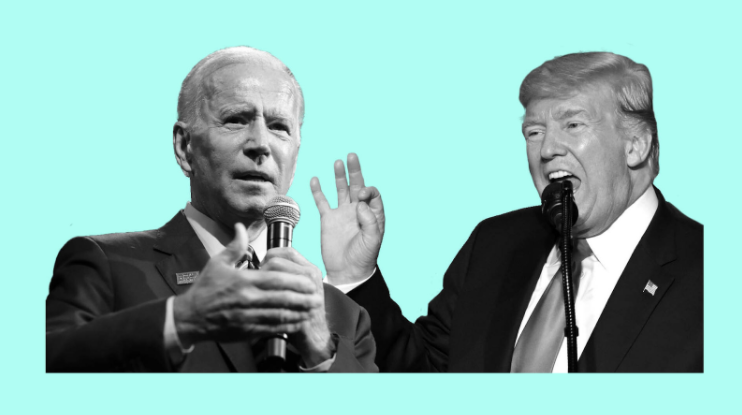President Donald Trump and former Vice President Joe Biden took the same stage last Thursday in the final presidential debate.
The rules for this debate remained largely the same as the first, with each candidate being allowed 2 minutes of uninterrupted speaking time and 30 seconds for a rebuttal.
The Commission on Presidential Debates implemented a new rule, however, allowing the moderator to mute the candidates’ microphones when interruptions occurred. The rule was created due to multiple interruptions which took place during the first presidential debate in September.
The first topic of discussion was the coronavirus pandemic and how each candidate plans to establish a protocol for the virus moving forward.
Trump said the mortality rate in the U.S. is down 85% and that the U.S. excess mortality rate is “much lower than almost any other country.” President Trump also provided a timeline for when he expects a coronavirus vaccine will arrive.
“We have a vaccine that’s coming. It’s ready. It’s going to be announced within weeks, and it’s going to be delivered and distributed by the military,” Trump said.
Previously, the president had stated the vaccine would arrive before Election Day.
Trump also discussed his coronavirus infection from earlier this month and praised the effectiveness of available treatments.
“I can tell you from personal experience that I was in the hospital. I had it, and I got better. And I will tell you that I had something that they gave me, a therapeutic I guess they would call it. Some people could say it was a cure,” Trump said. “I was in for a short period of time. And I got better very fast, or I wouldn’t be here tonight.”
Biden was very clear on his stance, placing blame on the president for his handling of the pandemic.
“Anyone who is responsible for that many deaths should not be President of the United States of America,” Biden said.
Biden gave several alternatives and examples of how he would handle the coronavirus moving forward, including a federal mask mandate, improvements in rapid testing and uniform national guidelines for reopening businesses and schools.
Kristin Welker, the moderator, then asked each candidate about their thoughts on recent reports that indicated Russia and Iran were working to influence the election.
Biden said any country interfering in a U.S. election would face consequences.
“I made it clear that any country, no matter who it is, that interferes in an American election will pay a price,” Biden said. “They will pay a price if I’m elected. They’re interfering with American sovereignty.”
Trump did not speak to how he would deal with those nations, instead pointing to his self-proclaimed track record against Russia.
Later in the night, the debate topic shifted towards the candidates’ thoughts on racial injustice in the United States.
Biden spoke about how he recognizes the disparity in privilege, citing an example of how his daughter interacts with police.
“I never had to tell my daughter if she’s pulled over, make sure she puts, for traffic stop, both hands on top of the wheel and don’t reach for the glove box because someone may shoot you,” Biden said. “But a Black parent, no matter how wealthy or how poor they are, has to teach their child, when you’re walking down the street, don’t have a hoodie on.”
Biden then went on to confirm, in his opinion, that there is institutional racism in America.
“We hold these truths to be self-evident, all men and women are created equal. well, guess what, we have never, ever lived up to it,” Biden said.
Trump briefly said that he understood why Black parents fear for their children but shortly after went on to attack Biden’s history with the African American community. He then pivoted and accused the former vice president of calling young Black men “superpredators,” a term that former Secretary of State Hilary Clinton had used in the 1990s, though it has never been confirmed that Biden used the term.
Trump also furthered his previous claim that no other president has done more for the Black community than him, other than the “possible exception” of Abraham Lincoln.
To end the debate, each candidate was asked what they would say on their inauguration day to Americans who did not vote for them.
Trump spoke first, emphasizing the importance of the economy.
“Success is going to bring us together,” Trump said. “We are on the road to success. But I am cutting taxes, and he wants to raise everybody’s taxes. And he wants to put new regulations on everything. He will kill it.”
Biden focused his message more on unity and how he would serve all citizens.
“I will say, I am an American president,” Biden said. “I represent all of you whether you voted for me or against me, and I’m going to make sure you are represented. I’m going to give you hope.”
tmc82h@mail.umkc.edu








